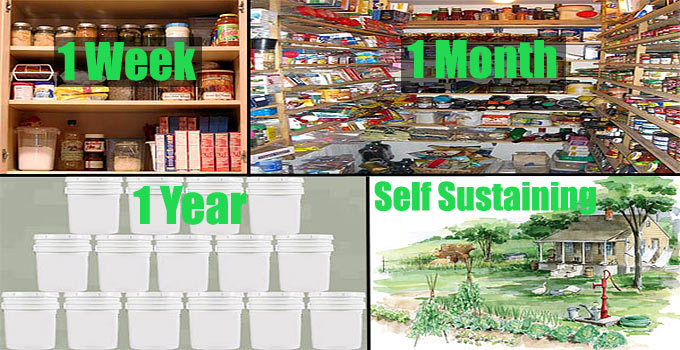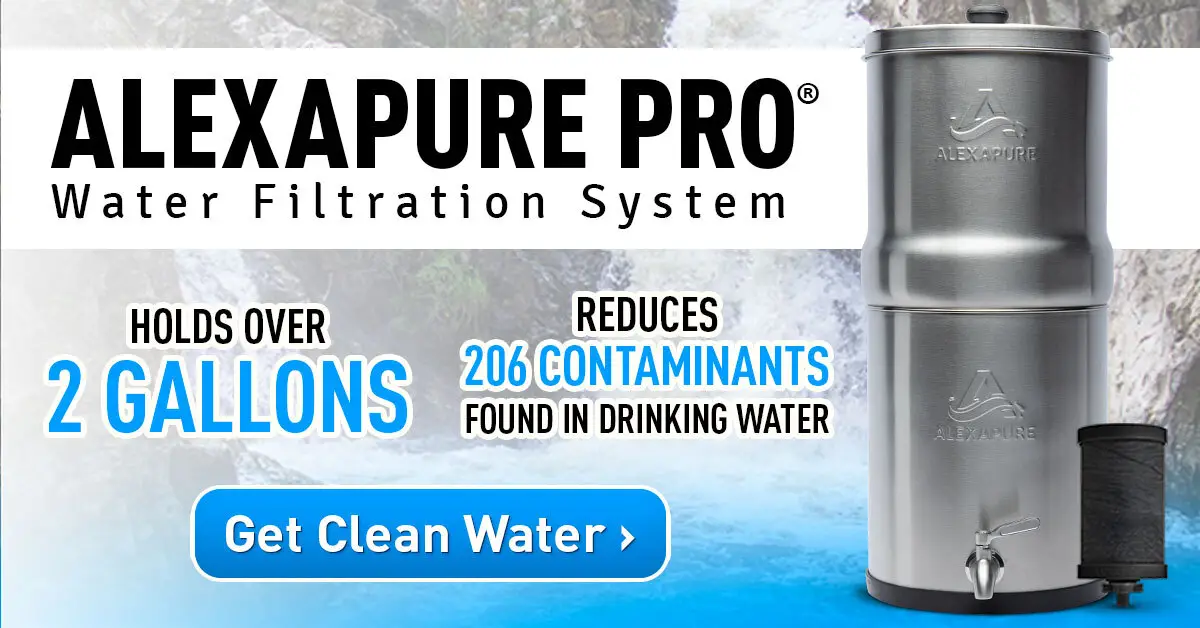Prepping and Preparedness

What Is Prepping?
Prepping, in the context of preparedness. Proactively being prepared for emergencies, disruptions, and the sometimes bad circumstances that life may throw at us.
I asked several AI sources, “What is prepping”? Here are the results:
Prepping, or preparedness, involves creating plans, gathering resources, and developing skills to handle emergencies, disasters, and survival situations. This can range from simple power outages to more catastrophic events like economic collapse or war. Preppers focus on acquiring supplies such as food, water, and shelter, and learning necessary skills to ensure they can survive disruptions. The extent of preparation varies based on individual circumstances, such as living in an urban or rural area, and can include short-term survival strategies for city dwellers and long-term self-sustaining methods for those in rural areas.
Prepping, short for preparedness, refers to the practice of preparing for emergencies, disasters, or societal disruptions. It is often associated with survivalism, where individuals or groups stockpile supplies and develop survival skills to ensure self-reliance during crises.
Prepping refers to the practice of preparing for emergencies, natural disasters, or other unforeseen events by stockpiling supplies, developing survival skills, and making plans to ensure personal safety and well-being. Preppers typically focus on being self-sufficient in case of situations like power outages, food shortages, or societal disruptions. Prepping can range from basic preparations, such as having extra food and water, to more extensive efforts involving survival gear, first aid training, and building resilient infrastructure.
My Thoughts On Prepping
I believe that the AI definitions above are adequately accurate. My own Modern Survival Blog guiding principle reads as follows…
Living a practical sensible preparedness-oriented lifestyle, coupled with a spirit of self-reliance, an extent of sustainable living – while in the pursuit of knowledge, life, liberty, and happiness.
It is a sort of lifestyle for me and is ingrained into my being. It is part of who I am – a prepper. I do not take for granted all modern life conveniences. Rather, I employ common sense contingencies for ‘just in case’. I do recognize the many systemic risks of a modern society and strive to be reasonably self sufficient and self reliant to an extent.

I look at prepping in terms of levels and have arbitrarily named levels 1 through 4.
Prepping Levels 1,2,3,4
- (1) Prepping for 1 – 2 weeks of disruption
- (2) Preparing for 1 – 2 months
- (3) Prepping for 1 year of survival
- (4) Self-sustainability to the extent possible
Prepping level 1 is simple and requires just a little bit of motivation. Level 2 is essentially a stepping stone to level 3 requiring a moderate amount of thought and effort. Level 3 truly is a milestone that many preppers desire, while level 4 is the ultimate which entails a serious lifestyle shift towards self-sustainability.
First let me say this… There are lots of articles here on Modern Survival Blog. Many of them cover a wide variety of prepping and survival preparedness-related topics. Use the SEARCH functionality (up top near the MENU area) to type in your own topics of interest. You might uncover some helpful information. Also, tap or click the MENU to focus on specific article topic categories of interest.
Prepping slow and steady. Avoid costly mistakes. Focus on priorities first.
The following is simply my own opinion on prepping by levels of effort. One’s own risk tolerance threshold will determine the extent taken.
Prepping Level 1 (Prepping for 1 – 2 Weeks of Disruption)
This is the most basic level of prepping and the easiest to achieve! In fact, it’s so easy that you have little excuse not to get it done :=)
It won’t cost much money. It won’t require any special skills beyond having some common sense and doing a few things.
Level 1 prepping will cover you for the majority of the “most likely to occur” emergencies or disruptive events in day-to-day life.
Sadly, the majority of people are not even up to Level 1 prepping. Most of modern society live a lifestyle of “here and now” consumption. Keeping only enough food on hand to last only several days. That’s all…
Additionally, most people have a strong normalcy bias. Assuming that food, supplies, and services will always be readily available. The thought of preparedness does not enter into consciousness. Don’t let that be you!
Prepping Level 2 (Prepping for 1 – 2 Months)
There are disasters that come along once in awhile that can be very disruptive and affect people (or a region) in very difficult ways. While these events may be less likely to occur, the fact is they can happen, and do happen.
I compare this level to being prepared for something like a major weather event that leaves the infrastructure of a region badly damaged for a period beyond just one or two weeks.
No electricity. Supply chains disrupted into the region. People may be stuck in their homes for quite awhile. Relying on what they have on hand without a working infrastructure. Things will get fixed. However, it’s going to take some time. It’s not the end of the world. But it won’t be easy for several weeks, a month, or even longer…
A major regional earthquake could fit into this category too (though this type of event could lead to Level 3!). I wonder how many who live along major earthquake fault zones are adequately prepared? Probably not too many at all…
A personal financial setback. A job loss in the household. The ability to rely on a well stocked inventory during that rough patch (for example).
Prepping Level 3 (Prepping for 1 Year)
The period of time ranging from 1 or 2 months all the way to 1 year is a very wide range. I chose this timeline to be Prepping level 3. When preparing for disruption (collapse) beyond 1 or 2 months, regardless whether it’s 3 months, 6 months, etc… you are essentially in the same SHTF mindset and same “mode” of survival.
If you’re reaching into your preps due to a Level 3 event, there has been some serious collapse / SHTF that has occurred! It may seem VERY UNLIKELY for this to occur. But one never knows…
This will be way beyond level 1 or level 2 prepping. The timeline here will potentially become downright dangerous. As a result, security will be a much bigger factor too. The uncomfortable reality will be that many, many people around you will be desperate. And many may even lose their lives. However you can get through it. How? By being prepared.
I believe that many current preparedness-minded people who have been at it for awhile are somewhere within this category, Level 3. When preparing for contingencies during a period of societal collapse, there are lots of very serious topics of concern.
Prepping Level 4 (Self Sustainability)
Time period: Self-sustaining (or as close as one can get)
Self-sustaining (my definition with reference to prepping) : maintaining or able to maintain oneself or household by independent efforts, best coupled within a like minded self–sustaining community. Picture the “old days” of self reliance. You simply had to get it done to survive.
Level 4 is the ultimate in prepping & preparedness. A big transition. To progress from being supplied and secured for 1 year, to actually being relatively or mostly self-sustaining is huge. And VERY difficult.
To prepare at this level implies one of two things. Either you’re preparing for a colossal disaster (Example: A major war. Or a major financial collapse. This could certainly lead to a Level 4. Shortages, etc.. ). Or, maybe you just want to strive towards living as self-sufficient as possible! It can be do-able, and rewarding. But requires quite a commitment. Lots of time and effort.
The desire to live a self-sufficient lifestyle. It’s quite a motivation. Additionally, there is the satisfaction that goes along with being independent from external systems that everyone else relies upon to literally keep them alive!
When you think about it, many of our ancestors were level 4 preppers by default! It was just the way it was if you wanted to survive. Today however, most everyone in current modern society would surely perish without a working infrastructure. And they wouldn’t have a clue what to do if that infrastructure went away…
Anyway, those are my general thoughts on an attempt to categorize prepping into basic, moderate, advanced, and expert. Most people don’t have time to devote to this. And I get that. My wish is that people would at least get to level 1 prepping – which would cover most all of the likely-to-occur circumstances. Level 2 is an attainable goal too. Take it as far as you want.
I also hope that more people will recognize that we live in a world of extreme reliance on external systems that are strained and easily breakable. Don’t let normalcy bias cloud your judgement.
Please enjoy the blog and the articles within.
Among the highest priorities for survival is safe drinking water.
AlexaPure Pro Gravity-Powered Water Filtration
Tested against NSF/ANSI 53, NSF/ANSI 42

